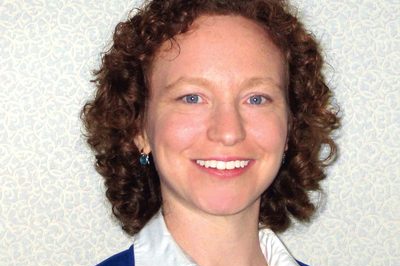I’ve often heard LGBTQ parents complain about the dearth of books on our families. It seems an embarrassment of riches, then, to have two excellent new books that each take a different, yet complementary, look at LGBTQ parenting.
The first is “Lesbian and Gay Parents and Their Children: Research on the Family Life Cycle” by Abbie Goldberg, an assistant professor of psychology at Clark University in Worcester, Mass. Goldberg has compiled and synthesized decades of research by herself and others into an academic work aimed in part at psychologists, social workers and similar professionals. It should also be read by every politician, judge and lawyer dealing with LGBTQ-related issues, for its conclusions both support the notion that LGBTQ families are as good for children as any others, and show how equal parental rights and relationship recognition would give these families greater emotional, financial and legal stability. LGBTQ parents, too, will find much to ponder here about our relationships with each other and with our children.
Goldberg structures the book around the “family life cycle,” beginning with the relationships of same-sex couples who are not yet parents, then looking at couples making the decision to become parents. Next, she examines the parental roles, concerns and values of those who are parents, and how parenting impacts their intimate relationships.
After that, she turns to the children, first exploring whether having lesbian or gay parents affects the development, mental health or identity of young children, then looking at adults with lesbian and gay parents. With hindsight, how do they view their growing-up experiences? How do they come out about their families? What are the experiences of those who come out as lesbian or gay themselves?
Goldberg’s conclusions are heartening. The children of lesbian and gay parents “are developing normally.” Lesbian- and gay-parent families “are not, by virtue of their family structure, essentially different from heterosexual-parent families.” In fact, it is “family processes,” the relationships and dynamics among family members, that “are often more important than family structure in influencing the mental health and adjustment of family members.”
Goldberg also asserts that future research should not simply judge gay and lesbian parents in comparison to heterosexual parents, an approach that maintains the latter as the ideal. If, instead, we study lesbian and gay families in their own right, we can open up the question of “What is a family?” and “significantly expand our understanding of parents, families, roles, gender and sexuality.”
That brings us to the second book, “Who’s Your Daddy? And Other Writings on Queer Parenting,” edited by Rachel Epstein, head of the LGBTQ Parenting Network at Sherbourne Health Centre in Toronto. The collection of nearly 40 essays, mostly from Canadian writers, covers a broad swath of the LGBTQ spectrum and serves, in a less academic way, to expand our understanding of family as Goldberg recommends.
There are single parents, butch moms, a teenaged parent, an infertile mom, a mother parenting through open adoption and one in a polyamorous relationship. There are transgender men who became parents both before and after transitioning, several through pregnancy. Several of the writers examine how race and ethnicity are woven into other queer parenting issues.
The authors ask tough questions: How does what we say about the limited importance of biological connections compare to what we actually do? What sort of masculine values does a butch mother convey to her son? Is it possible to “parent queerly” or is parenting itself a normalizing endeavor? How can we make space in the queer parenting community for those who want to incorporate elements of traditional parenting?
No one book can capture the entire diversity of LGBTQ parenting. Nevertheless, “Who’s Your Daddy?” reveals many more facets of LGBTQ parenting than most works on the subject, deftly offering both personal and political insights. It is a rich and rewarding volume that every LGBTQ parent and prospective parent should read.
Dana Rudolph is the founder and publisher of Mombian (www.mombian.com), a blog and resource directory for LGBT parents.
